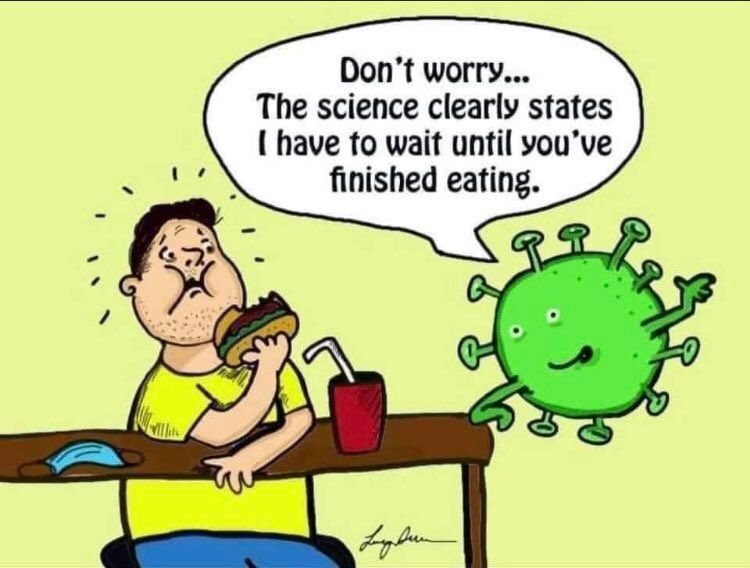Most of us have heard of great scientists like Newton, or Einstein - and rightly so. Newton was as mad as a six-legged warthog on heat, spending a good deal of time worrying about things like Incubi and Succubi and alchemy, but the sixth of his time he devoted to actual science was, in the understatement of the century, reasonably productive. Einstein was, with the same degree of understatement, known to be quite good too.
James Clerk Maxwell, the brilliant Scottish physicist, deserves to be mentioned in the same pantheon of scientific “gods”. He’s not as famous, at least in the general population, but he should be. He’s best known for his work on electricity and magnetism where he wrote down the equations that govern all electric and magnetic phenomena. But more than that, he showed that electricity and magnetism were really just the same thing.
Around the turn of the 19th century, Germany was an absolute powerhouse of scientific and mathematical thought, inspired by the colossal contributions of Gauss and Riemann. Emmy Noether was a product of this and, although more accurately described as a mathematician, she should also feature in this pantheon, in my view. Her work showing that symmetry underpins the conservation laws of physics was nothing short of spectacular. She made some amazing and fundamental contributions to mathematics too.
The thing these greats all have in common is that they brought a unification. They took different and seemingly disjoint parts of a scientific “narrative” and showed how, actually, they were part of a more coherent picture.
Newton took the various bits of knowledge and understanding of his time and synthesised it all into his 3 laws of mechanics, having to develop a whole new branch of mathematics in the process. More than that, though, he was probably the first person to really fully use an algebraic and mathematical approach to describe natural phenomena. It’s almost impossible to overstate his impact on science.
Maxwell unified electricity and magnetism and showed that light was really just a particular manifestation of electromagnetism. The first great unification of what were previously thought to be two entirely different things.
Einstein sorted out the discrepancy between Newton’s laws and Maxwell’s equations, thereby bringing them together into the same fold. Both Newton and Maxwell were correct, but to make Newton OK you have to work with 4-vectors. So Newton’s laws are just fine providing you work with things like the momentum 4-vector, instead of the plain old momentum vector.
Noether showed that underneath everything there’s this glorious, and perhaps mysterious, symmetry. If you do the same experiment on Tuesday and Wednesday you don’t expect to get different results, all other things being equal. This is a time symmetry - and, as Noether showed, the consequence of this is energy conservation. Similar symmetries underpin the other conservation laws - so if you rotate an experiment on the lab bench you don’t expect different results (a rotational symmetry) and this implies conservation of angular momentum.
It all makes sense. After all, we don’t believe nature acts in an arbitrary fashion with different bits working here but not there. We expect there will be a fully coherent and consistent description of nature’s workings. We haven’t fully found it yet, and it may not be simple - but we don’t believe nature is some kind of capricious, inconsistent and perverse bugger.
Let’s sum up the “coherence” of the covid narrative in one meme:
Definitions matter in science (and perhaps more so in mathematics). To make Newton fully consistent with Maxwell we have to work with an enlarged definition of what momentum is, for example. It includes the previous definition - and when things are not moving at very high speeds, the two definitions of momenta are pretty much the same thing.
Does anyone know what the definition of an “unvaccinated” person is these days? I don’t. It obviously doesn’t work like virginity, because if you’ve only been jabbed once I think you’re still classed as unvaccinated.
The vaccines themselves do not appear to be very good at stopping infection or transmission. The data does seem to suggest there’s some temporary effect at reducing symptom severity.
This is what we used to call a prophylactic. These days, it’s a vaccine - and the definition of what a vaccine is and does has had to be changed. The strange thing is that, if the many studies showing that ivermectin has a prophylactic effect are correct, it would mean we would have to class ivermectin as a vaccine, by the same rules.
What we have with covid is an ungodly mess. But that’s not a problem. It’s entirely normal and natural for science to be like this at the cutting edge. Lots of extraordinarily clever men and women faffing around without a frigging clue. Stuff gets proposed, shot down, resurrected with added bits, shot down again, brought back to life in a completely unrecognizable form, shot down again. There are more wrong ideas than right ones knocking around. Until someone comes along and sorts it all out - and, with the benefit of hindsight, it all becomes glaringly obvious.
Getting things wrong is, in my view, an absolutely fundamental part of the whole process. One of Einstein’s most influential papers, maybe one of the most important papers written in the 20th century, got it completely wrong. He was wrong, but for highly non-trivial and hugely important reasons. What he did was to (eventually) generate a whole load of profound work in figuring out exactly why he was wrong. The ramifications of this new understanding are only just coming to fruition (the development of quantum computers, for instance).
The problem is that if we stifle all of the “wrong” work - or the work we believe to be wrong, we make the process of making actual progress very difficult, if not impossible. And let’s face it, pretty much all of the great advances in science were “wrong” as judged by the prevailing narrative.
Robert Malone has just been permanently suspended from Twitter. He was instrumental in developing the techniques that have made the current crop of mRNA vaccines work. By any account his words should be listened to - and available for criticism - even if he turns out, in the final analysis, to be wrong.
Most of the criticism on Twitter just follows the media smear strategy. Comments like “he didn’t invent the mRNA technology - that’s just false”.
Ummm, OK - so what was it he said about the vaccines that was actually wrong?
But suspended he is, and for the “crime” of spreading dangerous misinformation. Like Galileo then, I guess?
Maybe he’s wrong and his words have persuaded some not to take the vaccine, and they have died from covid as a result. So what? He’s not responsible for the personal choices of others.
But, and this is the side of things these totalitarian wankers never seem to quite get, what if he’s right?





Indeed, a proper discussion presupposes that the other one could be right. In contrast, proper indoctrination requires there be only one answer to a problem. Sadly, the indoctrinators have established themselves firmly in our science institutions. How to dispose of them???
Another very nice paen to science, the way it works over time, and some of its former practitioners, but the problem is trying to fix the underlying confused-wanker problem with only an accurate description or definition of the problem isn't directly or immediately productive. So, what would be some possible scientific approaches to solving -- or at least minimizing -- this chronic wanker problem? And, is it really a problem, or is it just an integral part (feature) of a relatively functional (and necessary) system that has its uncomfortable and ugly moments? If the latter is true, then figuring out reliable means for non-wankers to persevere through the ugly bits might be the best approach to dealing with Totalitarian Wankers et al., 2021.